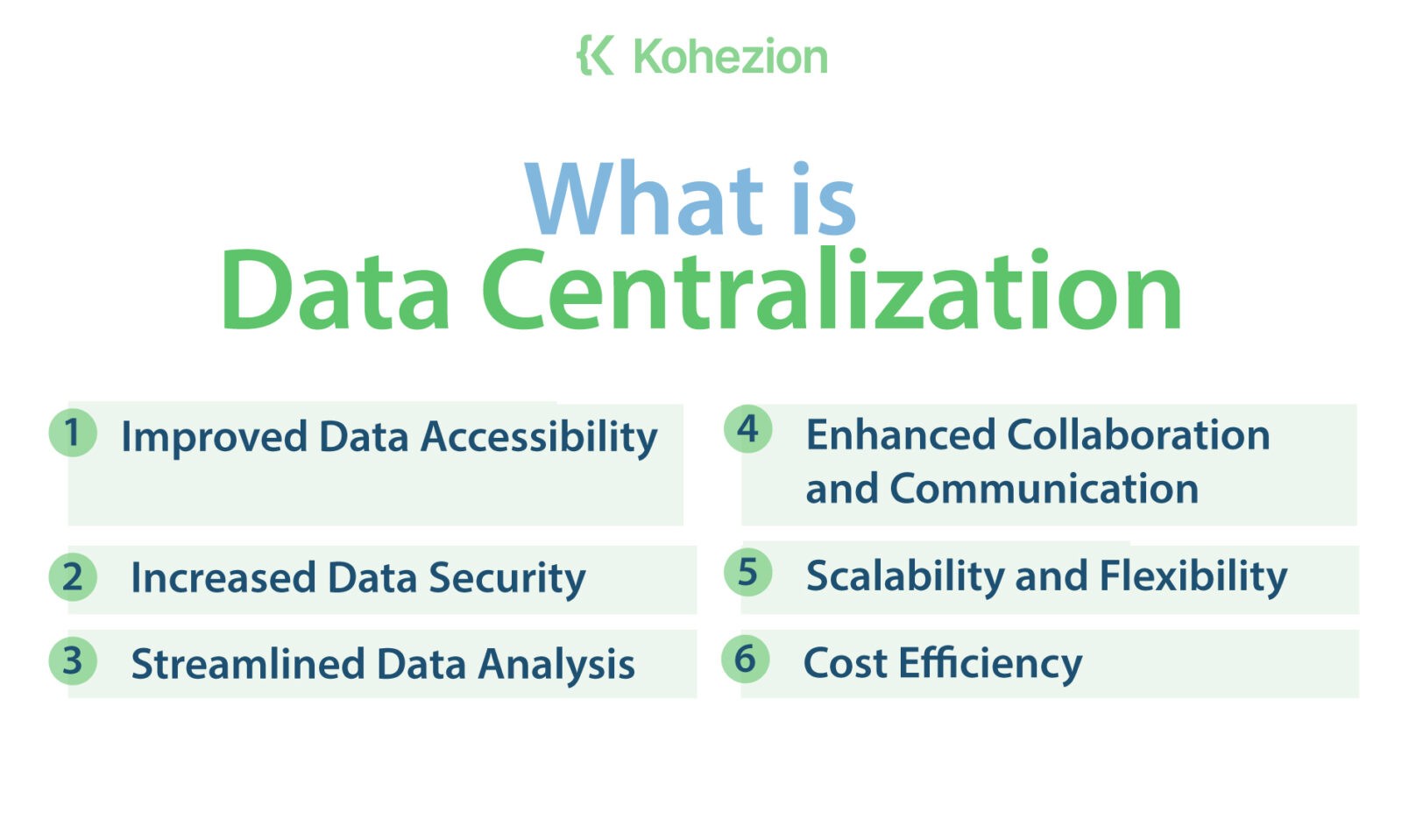What Is Data Centralization?
Data centralization involves consolidating data from a wide range of sources into a centralized location, whether it is a data warehouse or a cloud-based platform. There are many great benefits and perks of this centralized approach to data storage. They are explained below.

Benefits of Data Centralization
- Improved Data Accessibility: Centralizing data makes sure all relevant information is easily accessible to authorized personnel.
- Increased Data Security: Robust security measures like access controls, encryption protocols, and data backup procedures can help protect sensitive information.
- Streamlined Data Analysis: Seamless data integration and analysis means that all data are consolidated in one place. That allows for comprehensive data analytics.
- Enhanced Collaboration and Communication: Employees from different departments can access and share data easily, which results in better collaboration and communication.
- Scalability and Flexibility: Data centralization makes it easy to scale operations and adapt to changing business needs. As the volume of data grows, a centralized data infrastructure can accommodate the increased data load.
- Cost Efficiency: Since there’s no need for multiple data storage and management systems, both infrastructure and maintenance costs are considerably reduced.






